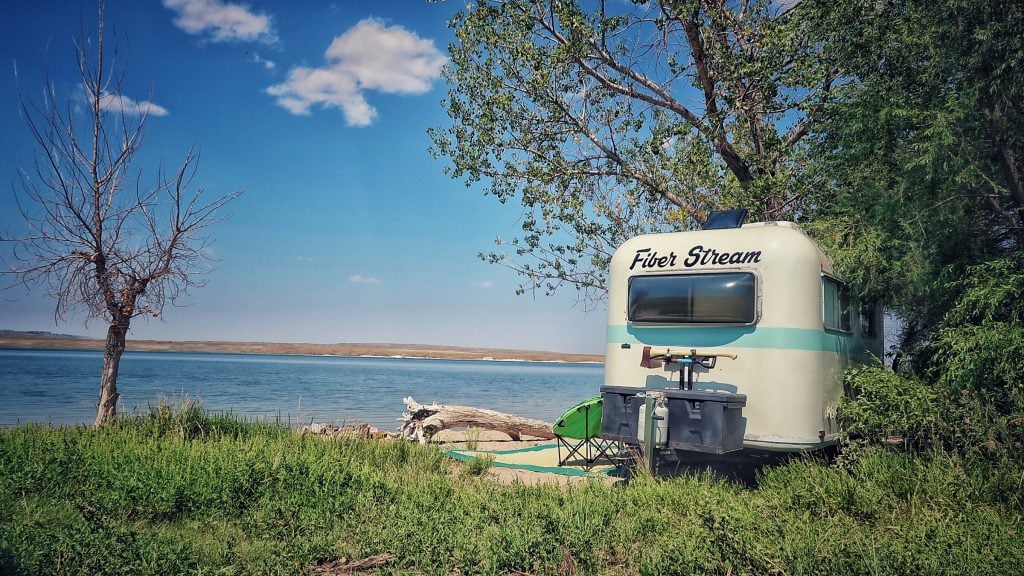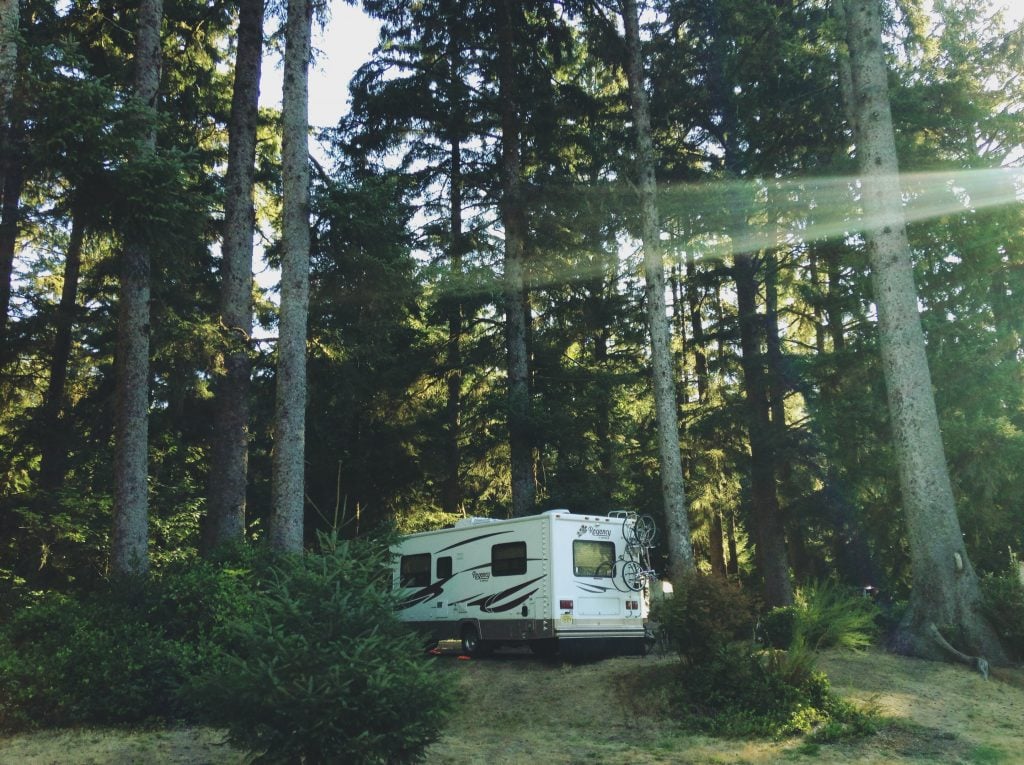Boondocking is a word you will come across quite a bit when you’re exploring camping groups and articles, but what is boondocking?
Boondocking is camping without hookups, meaning you need to provide your own water, power, and waste collection. It is generally free or inexpensive and varies depending on where you are geographically. It’s also important to know what your goal of the camping trip is, such as getting as close to nature as possible or just staying overnight somewhere on your way to a destination.
Now that you have a basic understanding of what boondocking is, let’s dive into more detail around this free camping option!
Is Boondocking Legal?
Yes, usually. Obviously private property has its own rules and some areas have laws against it. But, public lands in the Western US, such as BLM lands, usually allow for boondocking. There are rules of how long and where you can stay, but it’s pretty straightforward. The unwritten rule is to “leave no trace”, meaning taking everything in and everything out as to preserve nature for the next visitor. Boondocking on private property depends on the place, make sure to call ahead because each location is different.

Boondocking Types
There are many ways to boondock. While some folks will get technical with the terms, we consider all of the below options different ways to boondock.
1. Overnight Stays
Many Walmarts, Cracker Barrels, truck stops, rest areas, and some other big box stores allow overnight parking. The unwritten rule here is to call ahead and ask the manager for permission to stay. It’s also important to ask where you should stay in the parking lot. Lastly, do not “set up camp” while you are there. Meaning don’t put your slides out, rugs, chairs, grills, etc.
An understood courtesy is that you will purchase items or meals from the “host” store. This is a “thank you” for their hospitality. This type of camping is meant for a safe place to rest for a night, not a long term camping solution.

Dry Camping
This means you are camping in a “campsite” but there aren’t any electric, water, or sewer hookups. Many state parks have these situations, and some campgrounds even have overflow areas that would be considered boondocking.
Some purists argue that inside a park isn’t true boondocking, but instead dry camping. This is where the terms can overlap. Some campgrounds or parks have a hydrant where you can fill up water jugs, some have pit or vault toilets and showers, and some even have dump stations. Most of these incur a small fee for staying and/or for using amenities.
Dispersed Camping
This is mostly out in the Western US where there are vast stretches of BLM (Bureau of Land Management) or National Forest Service public lands. There aren’t established campgrounds, sometimes not even established roads. In some places, you are allowed to just pull off wherever and camp for a period of time (sometimes weeks) for free.
There are no services, no amenities, no hookups. You definitely need holding tanks for dispersed camping, as well as at least one reliable power source, generator or solar/batteries for all your needs.
You are on your own, although some locations actually are pretty busy and form their own communities (such as Quartzite, Arizona each winter). This is almost always free camping.

Moochdocking
This is basically dry camping at a friend or acquaintances home. Sometimes they have an electric or water hookup for you to steal, but sometimes it’s just a visit and a spot to hang for a day or two, but you will likely be having to find a place to empty your black tanks after you leave.
How to Boondock Safely and Responsibly
Of course, free camping sounds awesome, but there is a way to do it the right way and have respect for the host, the public lands, or the boondocking location. Below are some good rules to follow to be a responsible boondocker.
Pack It In, Pack It Out
This phrase is the “respect” of the natural location. You take everything in with you, and you take everything out. This means gray water (shower and sink) and black water (waste), as well as any garbage, etc. This is where it pays to know where the closest water and dump station is to your location and how long you can go conserving water.
Put Fires All The Way Out
Please put your fires all the way out! Especially in the West, drought and dry areas are generally in extreme fire danger. Just tamping down flames may work in a backyard fire pit, but it doesn’t work in these locations. Any warm embers or wood ash can easily spark back up in slight (and common) wind and cause massive fire damage, not to mention expensive and dangerous multi-million dollar mitigation efforts in forest fires. Be responsible, don’t burn trash, and put fires out COMPLETELY with water.
Avoid Wildlife
While some animals may seem friendly to humans, feeding them or getting close to them for photos actually puts their life in danger. As many animals become accustomed to people, they become dangerous and often get themselves into altercations or become pests, leading to them being killed or relocated away from their natural habitats. We don’t want to be responsible for that, so stay at a distance and don’t encourage them to come to the campsite by leaving food or attractive personal items outside.
Don’t Dump Tanks on the Ground
Don’t ever dump your tanks on the ground! Even gray water from showers has human scent and chemical soaps and shampoos. These upset the ecological systems in fragile remote locations. Also, they attract wildlife, which we don’t want (see above). For goodness sake, don’t dump your black tank. This is not acceptable by anyone. Imagine if you came to a beautiful place that was defaced by human waste? Would you want to stay there? Besides the contamination to a pristine natural environment, you’re ruining an experience for the next campers. Find a dump station ahead of when you might need it.

Why You Should Boondock
Boondocking is part of the allure of camping for many people. To get as remote as possible, to experience national parks or public lands in locations of extreme beauty, staying overnight on a long trip, or just to enjoy a quick visit at a friends house while passing through, boondocking and being self-sufficient is the reason many people got a camper or RV in the first place. Be prepared, be respectful, and enjoy the best parts of camping!
Checkout 5 Reasons You’re Not Ready for Boondocking to find out if you’re prepared.

Leave a Reply